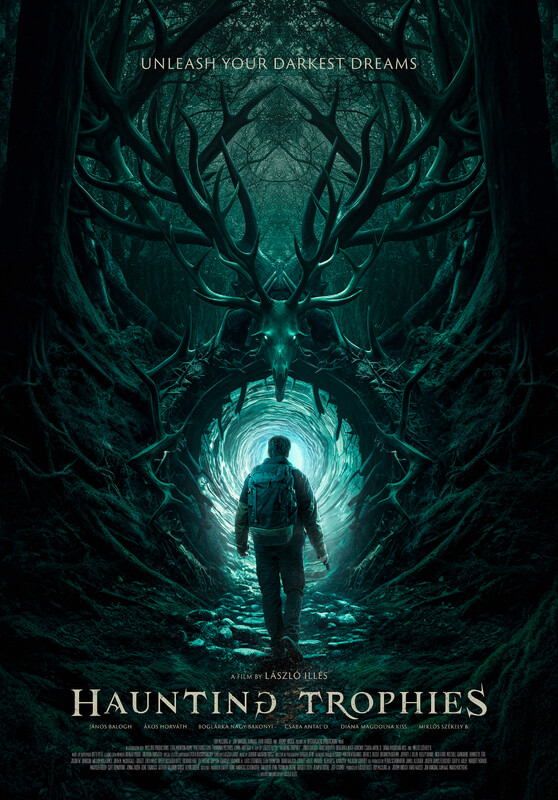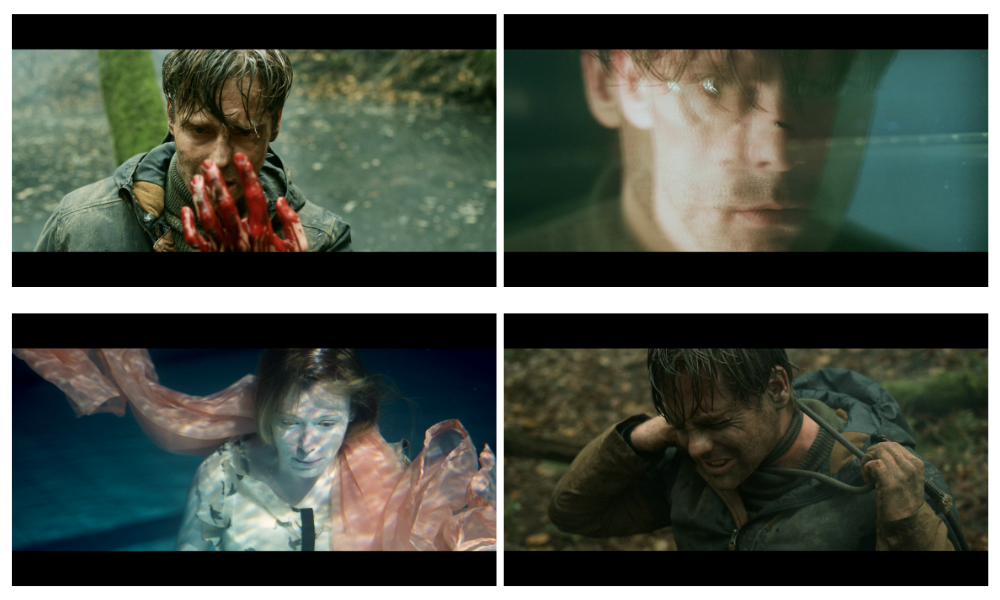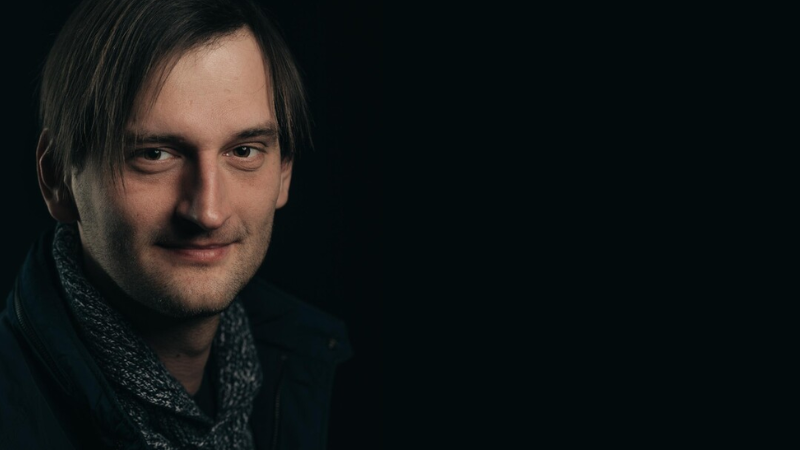László Illés
He began making independent films when he was 13 years old and has continued his passion for film to present day. Currently, he is directing feature films, documentaries and commercials. Throughout the years, he directed dozens of music videos, and also worked as 1st Assistant Director in Hungarian features, international films, commercials.
Illés’ independent personality carries through to his films, which have been primarily financed through crowdfunding and private investors. He owns his production company (Intergalactic Productions), which enables him to pursue his passion and make top quality, critically acclaimed independent films for international sale.
His first feature film was a horror film, ‘The Basement’, in which he served as director and producer. The Basement was released in more than 40 countries and on DVD, Blu-Ray, VOD, and Television winning rave reviews from audiences. It was also theatrically released in Hungary and available on NETFLIX in many regions.
The Shepherd was his second feature film as a director. It is a historical drama, which takes place in Europe during WWII. The main character is an old shepherd, who lives alone on a ranch. After his daughter gets killed by German soldiers, he decides in his grief to save as many Jewish lives as possible. Throughout the film, the Shepherd is faced with many difficult challenges, the most difficult culminating: to save the life of a Jewish family, a wounded girl, or himself from the German soldiers. The movie won 31 international awards, László Illés received more than 20 awards in best directing, best script and best movie category.
Haunting Trophies is his biggest project so far. It’s a mind-blowing thriller full of unprecedented twists and a unique and high-quality look.
Your project has entered in our festival. What is your project about?
Haunting Trophies is a suspenseful cinematic experience, packed with unprecedented twists that promise to captivate audiences. A young man hiking deep in the woods finds a female corpse manipulated in a bizarre manner. Shocked by the discovery, the man realizes that he is not alone on the scene. The murderer starts hunting him in order to protect his identity.
Illés’ independent personality carries through to his films, which have been primarily financed through crowdfunding and private investors. He owns his production company (Intergalactic Productions), which enables him to pursue his passion and make top quality, critically acclaimed independent films for international sale.
His first feature film was a horror film, ‘The Basement’, in which he served as director and producer. The Basement was released in more than 40 countries and on DVD, Blu-Ray, VOD, and Television winning rave reviews from audiences. It was also theatrically released in Hungary and available on NETFLIX in many regions.
The Shepherd was his second feature film as a director. It is a historical drama, which takes place in Europe during WWII. The main character is an old shepherd, who lives alone on a ranch. After his daughter gets killed by German soldiers, he decides in his grief to save as many Jewish lives as possible. Throughout the film, the Shepherd is faced with many difficult challenges, the most difficult culminating: to save the life of a Jewish family, a wounded girl, or himself from the German soldiers. The movie won 31 international awards, László Illés received more than 20 awards in best directing, best script and best movie category.
Haunting Trophies is his biggest project so far. It’s a mind-blowing thriller full of unprecedented twists and a unique and high-quality look.
Your project has entered in our festival. What is your project about?
Haunting Trophies is a suspenseful cinematic experience, packed with unprecedented twists that promise to captivate audiences. A young man hiking deep in the woods finds a female corpse manipulated in a bizarre manner. Shocked by the discovery, the man realizes that he is not alone on the scene. The murderer starts hunting him in order to protect his identity.

Tell us something about your shooting? What pleasantly surprised you?
Indie filmmaking presents both freedoms and constraints. While there is significant creative liberty, limitations emerge due to budget constraints. As a consequence, progress in production was a bit slower with a small crew and limited funds. The film's production was notably intricate, requiring time to organize each sequence, and we had to take breaks multiple times to secure funding for subsequent scenes. Hence, it took three years to bring the film to completion. I believe the biggest challenge always comes down to the budget and figuring out how to creatively navigate the limited financial constraints without compromising the visual aesthetics and quality.

For what group of spectators is your film targeted?
It is intended for viewers who are not seeking conventional stories, those who enjoy thinking through films, spending time understanding, appreciating twists and turns, and embracing a slower pace.
Why should distributors buy your film?
I have a deep passion for thrillers and films that are so intricately woven that viewers need to revisit them multiple times to fully grasp the plot. It's crucial for me to narrate stories that provoke thought and leave a lasting impact on the audience. We aimed to create a film that stands out from the rest with its story and visual language. There are increasingly fewer films that strive for originality, and ours does. Rarely do new thrillers have such intricate plots that require significant mental engagement. Audiences are hungry for such experiences.

How would you specify your work? What characterizes your film?
The storylines of the film intertwine not only in space but also in time, unveiling information in a way that continually offers a fresh interpretation of the film, challenging what viewers initially thought about the “resolution." Beyond the complexity of the story and numerous twists, we aimed to devise a visual language that diverges from the conventional. The film features several slow-motion sequences at crucial narrative points, a technique rarely employed in previous films.
Why did you decided to become a filmmaker?
I didn't choose this path; rather, filmmaking found me. It has been a part of my life since childhood, and at the age of 13, I started making my own films. It was never a question of what to do for me. It's not a job; I'm a film fanatic, living for my passion and hobby. Filmmaking has always been not only the first but also the last option in my lifetime, the one thing I want to fill my lifetime with.
Who is your role model?
My favorite directors include Bela Tarr, Andrei Tarkovsky, Stanley Kubrick, Akira Kurosawa, Christopher Nolan, and Darren Aronofsky, Giuseppe Tornatore and Lars von Trier.
Which movies are your favorites? Why?
Being a Star Wars fanatic in my childhood, I watched the original trilogy the most. Since then, my taste has evolved towards more dramatic narratives and unique film language, storytelling, and visual solutions.
Where do you look for inspiration for your films?
I don't believe one should force inspiration. If an idea comes to me while watching a film, I know it wouldn't be my own, just a replica... So, I discard these ideas right away. The stories that eventually make it to the screen originate in my mind during the most unexpected situations.
Which topics interest you the most?
It varies completely. I believe diversity is crucial as a creator. It's essential not to get stuck in one theme or genre; I enjoy experimenting and trying myself in various realms. What matters is to bring to life stories that can have a profound impact, carry significant messages, or approach a subject in an entirely new and unique way.
What do you consider your greatest achievement in your career?
I find it important to produce increasingly larger, more complex, and impactful films that surpass the previous ones. Therefore, I always consider my current film as the greatest achievement. It's crucial not to stagnate and say that I consider my previous films or their successes as the pinnacle; that would mean I went wrong with my new film. One must evolve, create increasingly significant works. Currently, I view 'Haunting Trophies' as the greatest achievement, and I'm working to make my next film even better.
What do you consider most important about filming?
To provide the audience with something meaningful, whether it's important content, a new perspective, shedding light on issues, offering solutions to life situations, or simply providing entertainment, but all in a quality form. It's crucial to strive for uniqueness, ensuring that each film has something that sets it apart. With countless films being made worldwide, sticking to clichés is something to avoid.
Which film technique of shooting do you consider the best?
I am in love with long takes, where the camera breathes and coexists with the protagonist. I don't appreciate quick and short films; I believe the era of 80-100 minute films has passed. If a film has substance, weight, and complexity, it cannot be told in such a short time. If the audience doesn't want to spend more time with the protagonist, doesn't want to get to know and witness their life on screen, then the character and the story aren't complex enough. A film shouldn't be just something to get through; if a scene can be cut very short, it's either not good enough or the material isn't significant enough.
How would you rate/What is your opinion about current filmmaking?
It's disheartening to witness what's happening in studio films. There's a lack of originality, no new stories, no new perspectives; only remakes, reboots, and sequels are being made, and that's disheartening. I understand the need to minimize financial risks, and that's why studios opt for proven films or franchises, but there are plenty of new and excellent stories that should be given the opportunity to come to life.
What can disappoint you in a movie?
Lack of originality, poor acting, one-dimensional storyline, and weak execution.
Who supports you in your film career?
My films are made through crowdfunding, support from private investors, and revenues from my previous films. I hope to have the opportunity to create big-budget films in the future, working with larger resources. Nevertheless, if that happens, I will surely miss this period, the carefree creative freedom it offers.
What are the reactions to your film? (opinion of spectators, film critics, friends and
family)
I don't want to offend them, but the opinions of family and friends are, in my opinion, irrelevant; they can never be objective, so their views shouldn't be taken into account. Fortunately, the film has been performing very well at festivals, receiving over two dozen awards, and many more festivals are ahead. There is growing interest from distributors and sales agencies as the film has not been officially released yet. The feedback following the viewing of the screener version has been very positive. I am optimistic.
Have you already visited any of the prestigious film festivals?
Without delving into financial constraints, as an independent filmmaker, one has different opportunities compared to larger budget films, and this applies to festivals as well. One strives to allocate every resource to what appears on the screen, leaving little budget for marketing and festival expenses. With my film 'The Shepherd,' I won many awards and received invitations to numerous festivals. However, due to the previously mentioned reasons, I don't have the opportunity to attend all of them. Nonetheless, many festivals announce the winners in advance, so if I know I will receive an award at a particular festival, I make every effort to attend the event.
What are your future plans in filmmaking carriere?
Naturally, I have a lot of ideas and completed scripts that I want to bring to life, and in the long run, I aim to work on significant projects for studios. I'm already working on my new film, titled "Ever After," a Halloween-themed horror feature film. It promises to be a spinechilling horror experience as urban zoomers confront classic fairy tale characters such as Little Red Riding Hood, Big Bad Wolf, Three Little Pigs, The Witch, Prince Charming, Rumpelstiltskin, and The Frog King.
